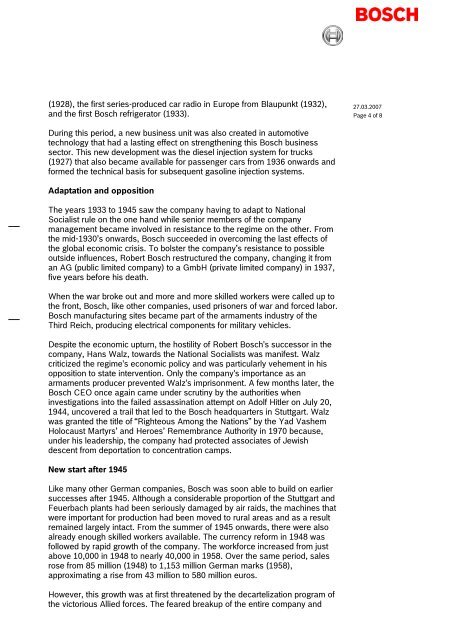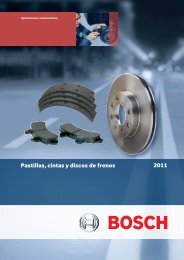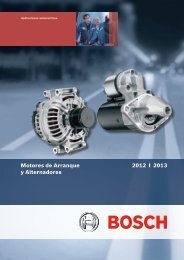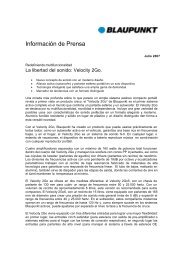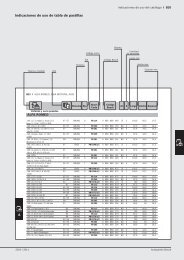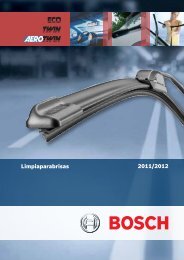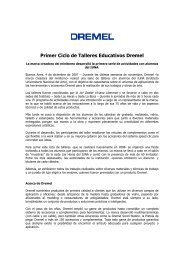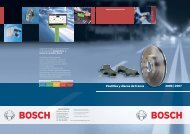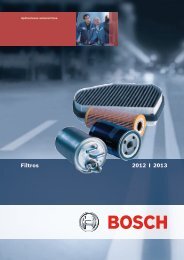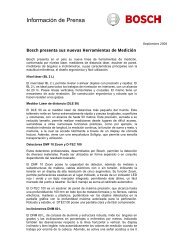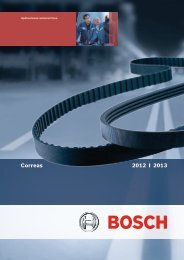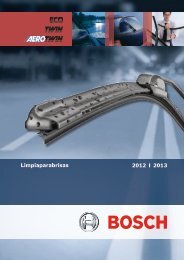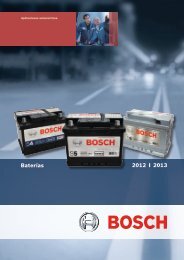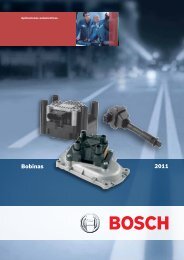Bosch Company History - Bosch Argentina
Bosch Company History - Bosch Argentina
Bosch Company History - Bosch Argentina
Create successful ePaper yourself
Turn your PDF publications into a flip-book with our unique Google optimized e-Paper software.
(1928), the first series-produced car radio in Europe from Blaupunkt (1932),<br />
and the first <strong>Bosch</strong> refrigerator (1933).<br />
27.03.2007<br />
Page 4 of 8<br />
During this period, a new business unit was also created in automotive<br />
technology that had a lasting effect on strengthening this <strong>Bosch</strong> business<br />
sector. This new development was the diesel injection system for trucks<br />
(1927) that also became available for passenger cars from 1936 onwards and<br />
formed the technical basis for subsequent gasoline injection systems.<br />
Adaptation and opposition<br />
The years 1933 to 1945 saw the company having to adapt to National<br />
Socialist rule on the one hand while senior members of the company<br />
management became involved in resistance to the regime on the other. From<br />
the mid-1930’s onwards, <strong>Bosch</strong> succeeded in overcoming the last effects of<br />
the global economic crisis. To bolster the company’s resistance to possible<br />
outside influences, Robert <strong>Bosch</strong> restructured the company, changing it from<br />
an AG (public limited company) to a GmbH (private limited company) in 1937,<br />
five years before his death.<br />
When the war broke out and more and more skilled workers were called up to<br />
the front, <strong>Bosch</strong>, like other companies, used prisoners of war and forced labor.<br />
<strong>Bosch</strong> manufacturing sites became part of the armaments industry of the<br />
Third Reich, producing electrical components for military vehicles.<br />
Despite the economic upturn, the hostility of Robert <strong>Bosch</strong>'s successor in the<br />
company, Hans Walz, towards the National Socialists was manifest. Walz<br />
criticized the regime's economic policy and was particularly vehement in his<br />
opposition to state intervention. Only the company's importance as an<br />
armaments producer prevented Walz's imprisonment. A few months later, the<br />
<strong>Bosch</strong> CEO once again came under scrutiny by the authorities when<br />
investigations into the failed assassination attempt on Adolf Hitler on July 20,<br />
1944, uncovered a trail that led to the <strong>Bosch</strong> headquarters in Stuttgart. Walz<br />
was granted the title of “Righteous Among the Nations” by the Yad Vashem<br />
Holocaust Martyrs’ and Heroes’ Remembrance Authority in 1970 because,<br />
under his leadership, the company had protected associates of Jewish<br />
descent from deportation to concentration camps.<br />
New start after 1945<br />
Like many other German companies, <strong>Bosch</strong> was soon able to build on earlier<br />
successes after 1945. Although a considerable proportion of the Stuttgart and<br />
Feuerbach plants had been seriously damaged by air raids, the machines that<br />
were important for production had been moved to rural areas and as a result<br />
remained largely intact. From the summer of 1945 onwards, there were also<br />
already enough skilled workers available. The currency reform in 1948 was<br />
followed by rapid growth of the company. The workforce increased from just<br />
above 10,000 in 1948 to nearly 40,000 in 1958. Over the same period, sales<br />
rose from 85 million (1948) to 1,153 million German marks (1958),<br />
approximating a rise from 43 million to 580 million euros.<br />
However, this growth was at first threatened by the decartelization program of<br />
the victorious Allied forces. The feared breakup of the entire company and


